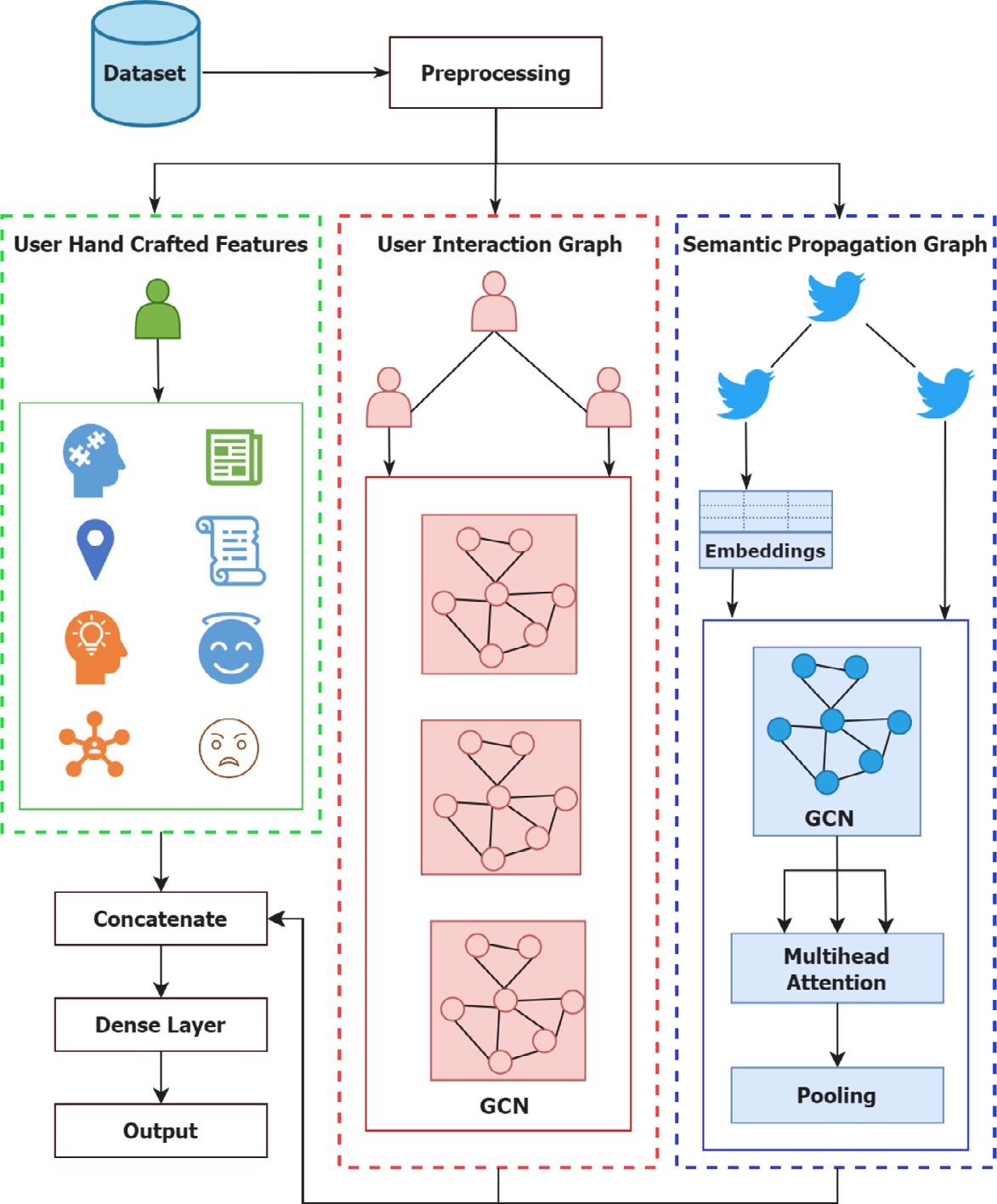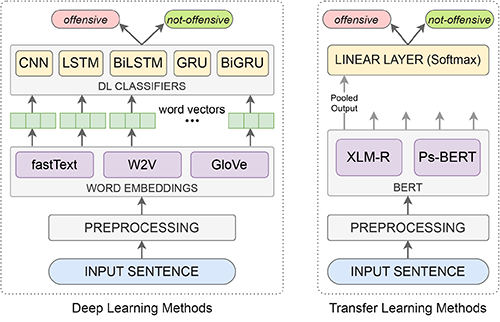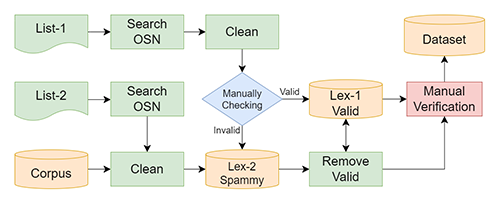Author: ijaz.me
-

A. Kanwal, K. Muhammad Asghar, H. Ijazul, M. Alanoud Al, M. S. Syam, I. Nisreen, et al., “Social media’s dark secrets: A propagation, lexical and psycholinguistic oriented deep learning approach for fake news proliferation,” Expert Systems with Applications, vol. 255, p. 124650, 2024. (SCI)
—
by
Abstract Most existing methods for detecting fraudulent news or other forms of disinformation primarily rely on user profiling or content analysis, determining whether a given article aligns with a user’s stylistic or content-related preferences. This research departs from conventional approaches by concentrating not only on the characteristics of shared content but also on user interactions…
-

H. Ijazul, Q. Weidong, G. Jie, and T. Peng, “Correction of Whitespace and Word Segmentation in Noisy Pashto Text using CRF,” Speech Communication, vol. 153, p. 102970, 2023. (SCI)
—
by
Abstract Word segmentation is the process of splitting up the text into words. In English and most European languages, word boundaries are identified by whitespace, while in Pashto, there is no explicit word delimiter. Pashto uses whitespace for word separation but not consistently, and it cannot be considered a reliable word-boundary identifier. This inconsistency makes…
-

H. Ijazul, Q. Weidong, G. Jie, and T. Peng, “Pashto Offensive Language Detection: A Benchmark Dataset and Monolingual Pashto BERT,” PeerJ Computer Science, 2023. (SCI)
—
by
Abstract Social media platforms have become inundated with offensive language. This issue must be addressed for the growth of online social networks (OSNs) and a healthy online environment. While significant research has been devoted to identifying toxic content in major languages like English, this remains an open area of research in the low-resource Pashto language.…
-

H. Ijazul, Q. Weidong, G. Jie, and T. Peng, “NLPashto: NLP Toolkit for Low-resource Pashto Language,” International Journal of Advanced Computer Science and Applications, vol. 14, pp. 1345-1352, 2023. (SSCI)
—
by
Abstract In recent years, natural language processing (NLP) has transformed numerous domains, becoming a vital area of research. However, the focus of NLP studies has predomi-nantly centered on major languages like English, inadvertently neglecting low-resource languages like Pashto. Pashto, spoken by a population of over 50 million worldwide, remains largely unexplored in NLP research, lacking…
-

H. Ijazul, Q. Weidong, G. Jie, and T. Peng, “POS Tagging of Low-resource Pashto Language: Annotated Corpus and Bert-based Model,” Language Resources and Evaluation, 2023. (SCI)
—
by
Abstract In this study we developed a corpus of the low-resource language – Pashto. The corpus consists of 5 million words, labeled for explicit word-boundaries. And at the time of writing this paper, around 2 million of the words are tagged for Part-of-speech (POS) information. Pashto has no explicit word-delimiter like whitespace in English. The word-boundary markers…
-

H. Ijazul, Q. Weidong, G. Jie, and T. Peng, “Spammy Names Detection in Pashto Language to Prevent Fake Accounts Creation on Social Media,” presented at the 8th International Conference on Signal and Image Processing (ICSIP), Wuxi, China, 2023. (EI)
—
by
Abstract With the widespread adoption of online social networks (OSNs), the proliferation of fake accounts has become a significant concern. For malicious users, fake accounts are their preferred means to commit fraud, send spam, and abuse the system. Detecting fake profiles after account registration can also be valuable, while unlawful activities can be carried out…
-

-

H. Ijazul, Research on Several Key Technologies of NLP for Low Resource Pashto Language, Shanghai Jiao Tong University. (PhD Thesis)
—
by
Abstract Emerged in the last decade, Online Social Networks (OSNs) have become an integral part of our daily lives, providing numerous benefits, such as information sharing and ease of business. However, with the increased usage of these platforms, there has been a rise in the prevalence of abusive activities, such as the dissemination of offensive…
-

Ijazul Haq – The top AI Researcher of Pakistan
—
by
ijazul Haq is known as the top AI researcher in Pakistan. He is a PhD holder in AI, NLP and Cyber Security.